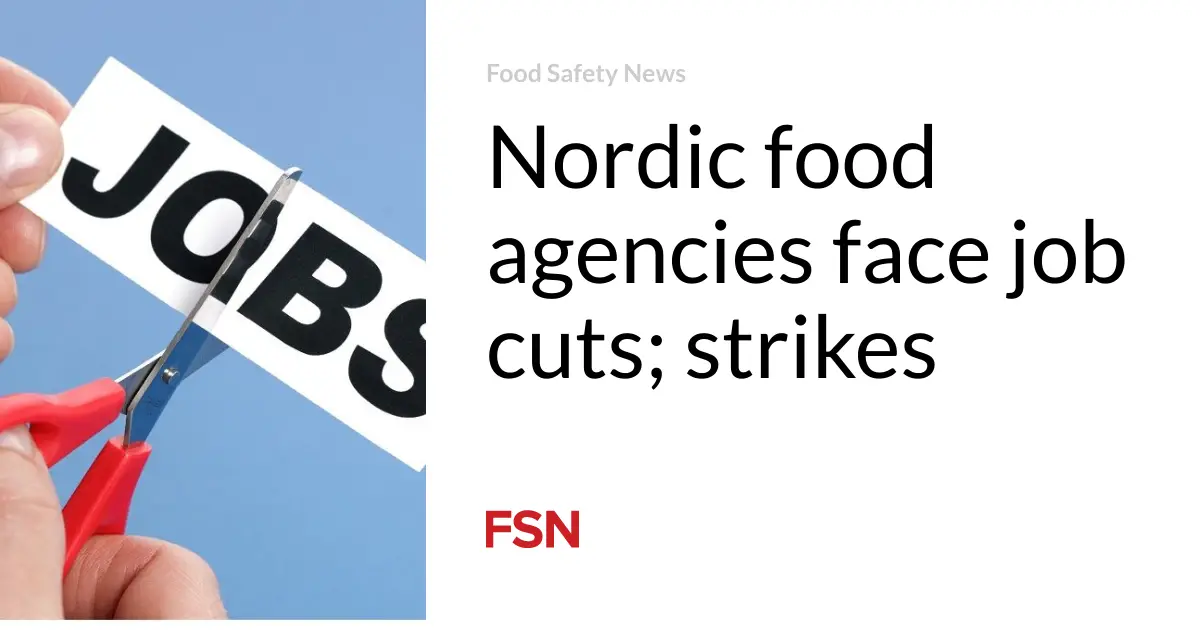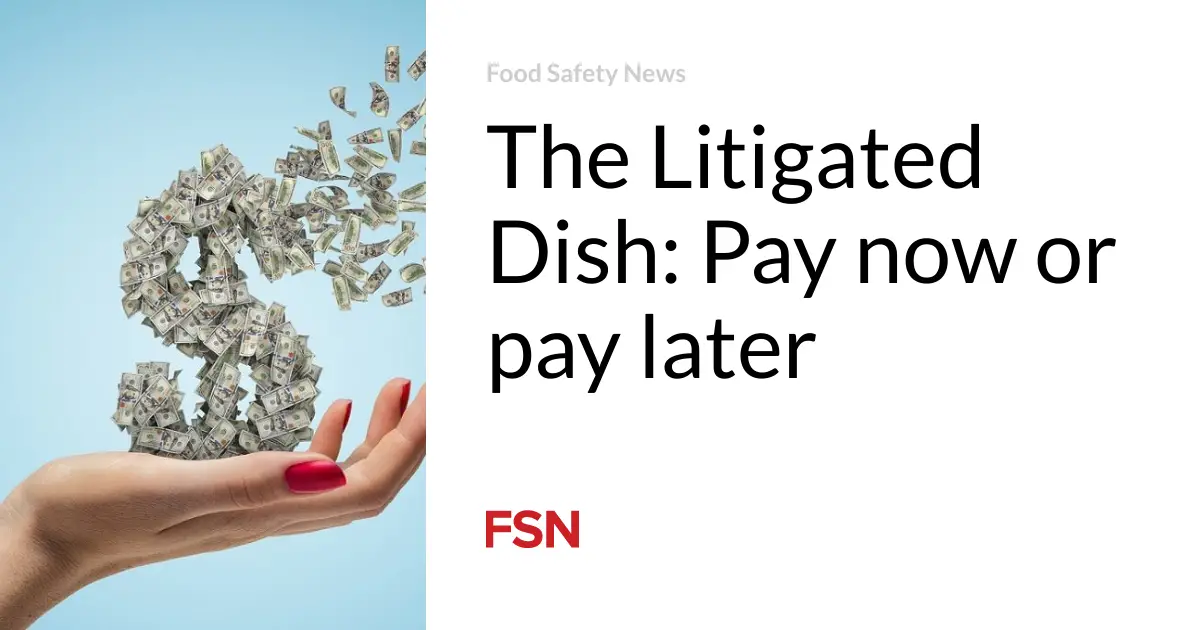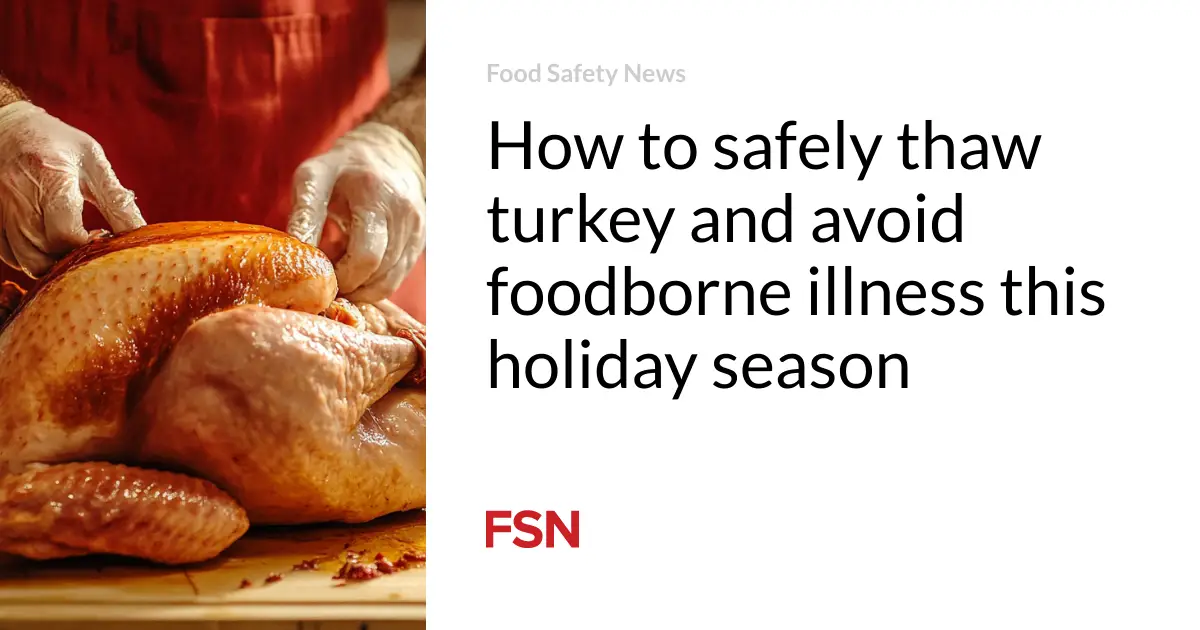
More than 90 people look set to lose their jobs at the Finnish Food Authority (Ruokavirasto) as part of savings plans.
The agency estimates that it will have to terminate the employment of 93 people. Dismissals are planned to be carried out by Sept. 30 and no later than Nov. 30, 2024. This is better than an initial assessment in April that up to 143 jobs were at risk.
The Finnish Food Authority said it intends to suspend all of its personnel, except for those performing meat inspection tasks, for two weeks at some point later this year. The move will also mean changes in job responsibilities.
Leaner operations
Leena Räsänen, CEO of the Finnish Food Authority, said the aim is to stabilize the agency’s finances.
“Between 2024 and 2028, the food agency’s expenditure is higher than the resources of the state budget and income funding. Despite past savings and identified saving opportunities, the agency’s economic situation in the coming years will be weak, and achieving a balance requires additional savings for the agency’s operating costs. Savings measures will inevitably affect the food agency’s ability in various functions. As resources decrease, we cannot completely avoid decreasing service levels.”
In addition to dismissals and redundancies, the authority seeks other savings by looking at investments, travel expenses, and purchasing services.
The Finnish Food Authority plans to reduce and streamline its tasks, operations and functions in all operating units. The agency employs about 1,000 experts in different fields across 20 locations. Funding for operating expenditure in 2024 is €79.5 million ($86.5 million).
The agency has to find about €4.4 million ($4.8 million) of savings in 2024. In line with proposals for 2025 to 2028, the aim is to see savings of €10 million ($10.9 million) annually in operating expenses.
JUKO, Trade Union Pro, and the Trade Union for the Public and Welfare Sectors (JHL) criticized the food agency for its reluctance to avoid cuts that affect staff and outsourcing plans for IT services.
Tapani Lyytikäinen of JUKO (the Negotiation Organization for Public Sector Professionals) said the actions proposed were “disproportionate” and did not help to achieve a permanent economic balance.
Impact of Strikes in Norway
Meanwhile, in Norway, almost 300 of the Norwegian Food Safety Authority’s (Mattilsynet) employees went on strike recently.
The authority warned of a backlog in services and case processing following industrial action by 287 staff, who are now all back at work. Impacted areas included tasks in slaughterhouses and border control.
The Federation of Norwegian Professional Associations (Akademikerne) said the Minister of Labour and Social Inclusion, Tonje Brenna, stopped the strike.
Strike action had consequences for about half of all chicken and turkey production in Norway, affecting up to 30 percent of all pig production. The Norwegian Food Safety Authority said issues included animal welfare, food supplies, food waste, and economic consequences for farmers and producers.
Some border control posts had reduced veterinarian capacity to do checks on animals and animal products coming into Norway, plus there was an impact on the issuing of export certificates for seafood.
The Norwegian Food Safety Authority said it could not handle and investigate incidents and urgent matters like outbreaks. It was also unable to follow up on immediate notification of incidents involving food and feed in other European countries.
(To sign up for a free subscription to Food Safety News, click here.)







